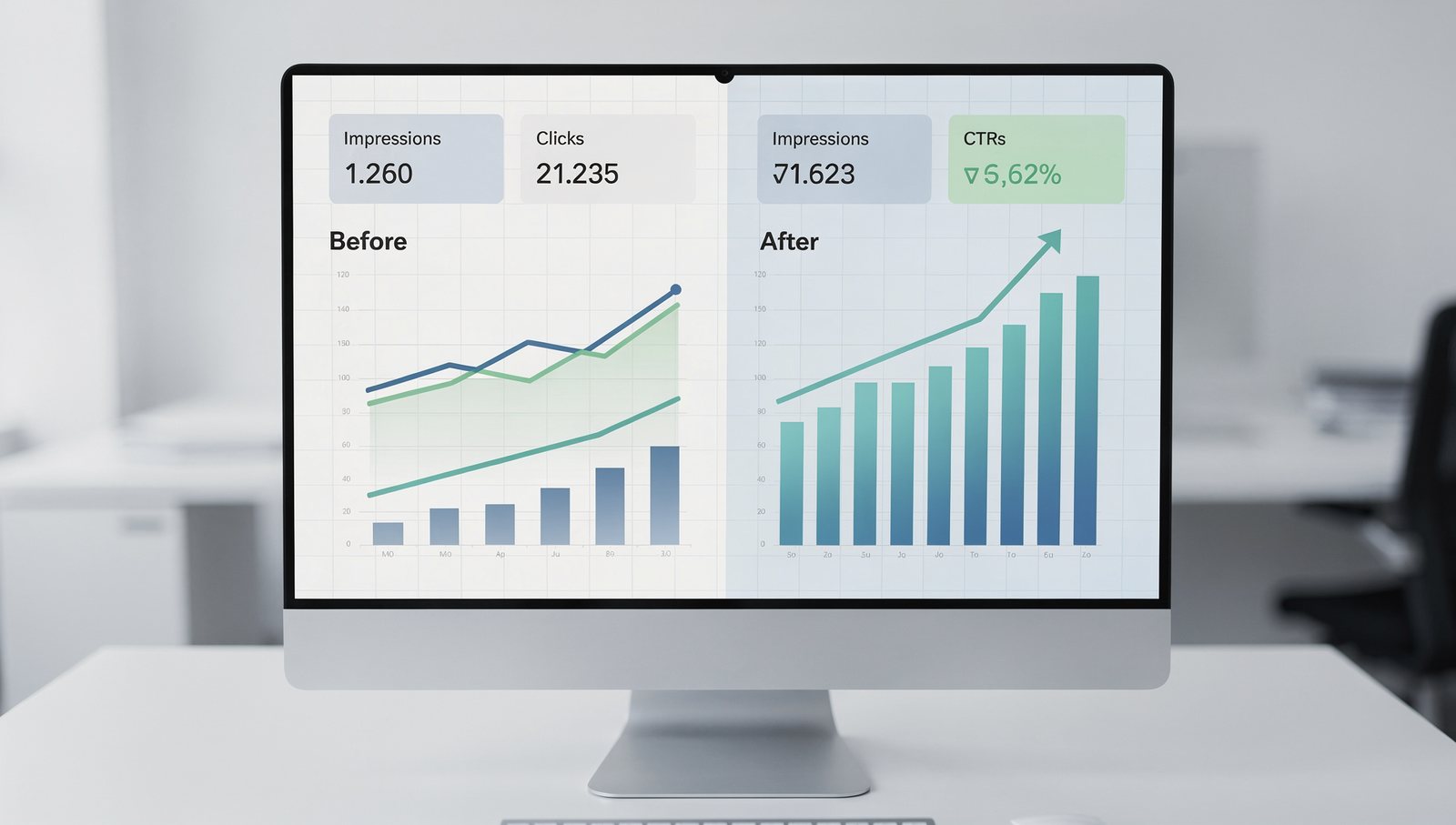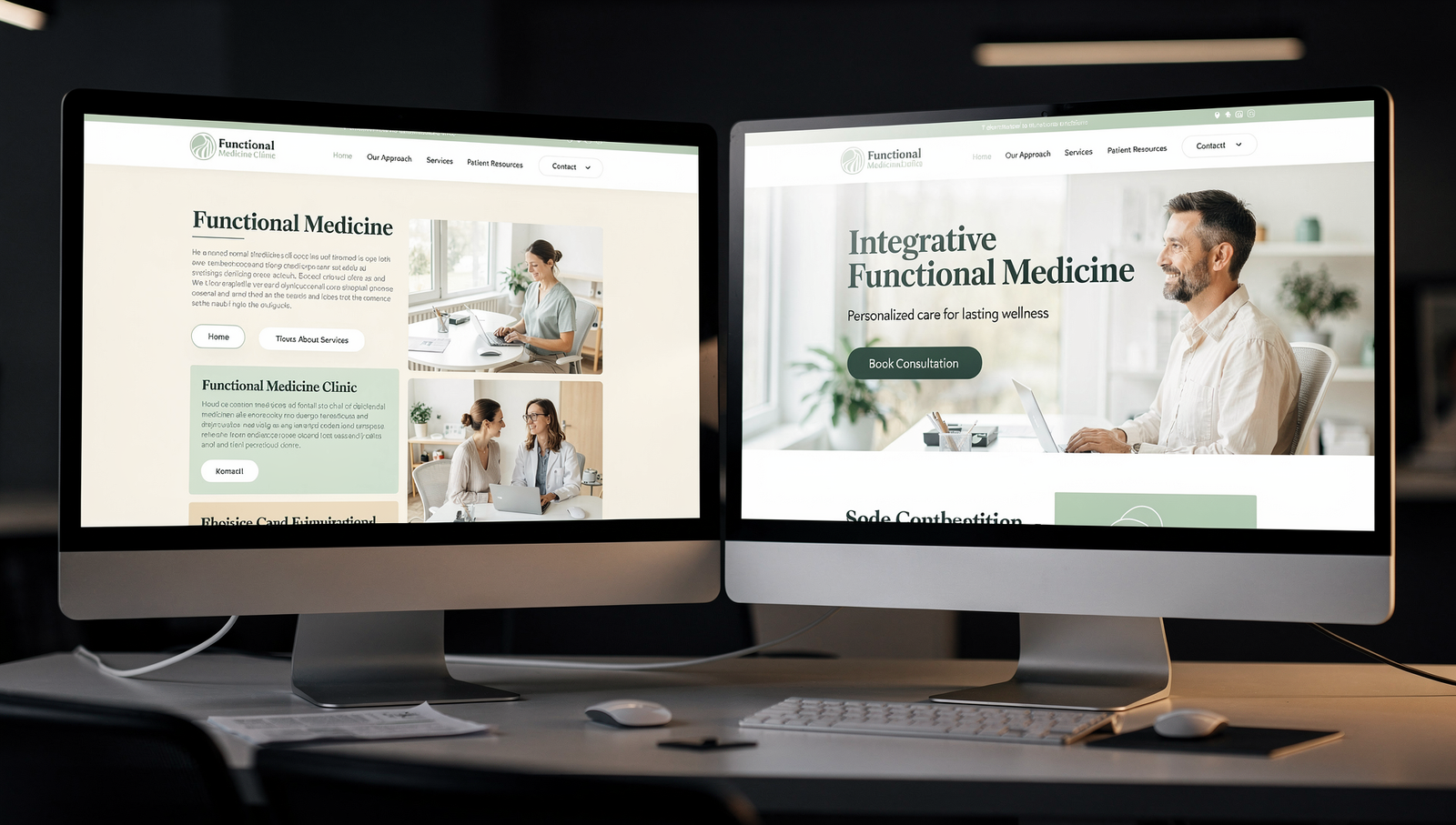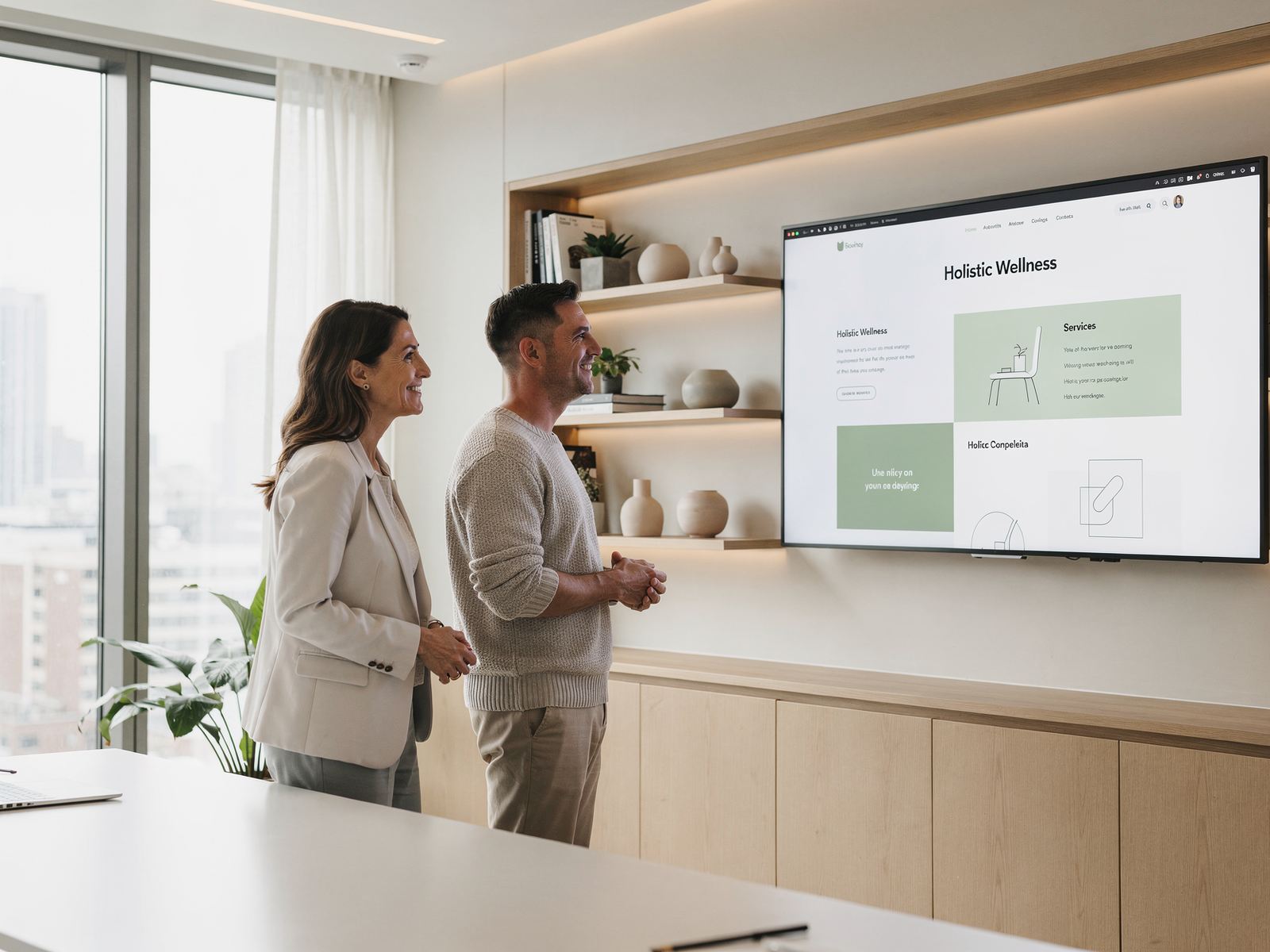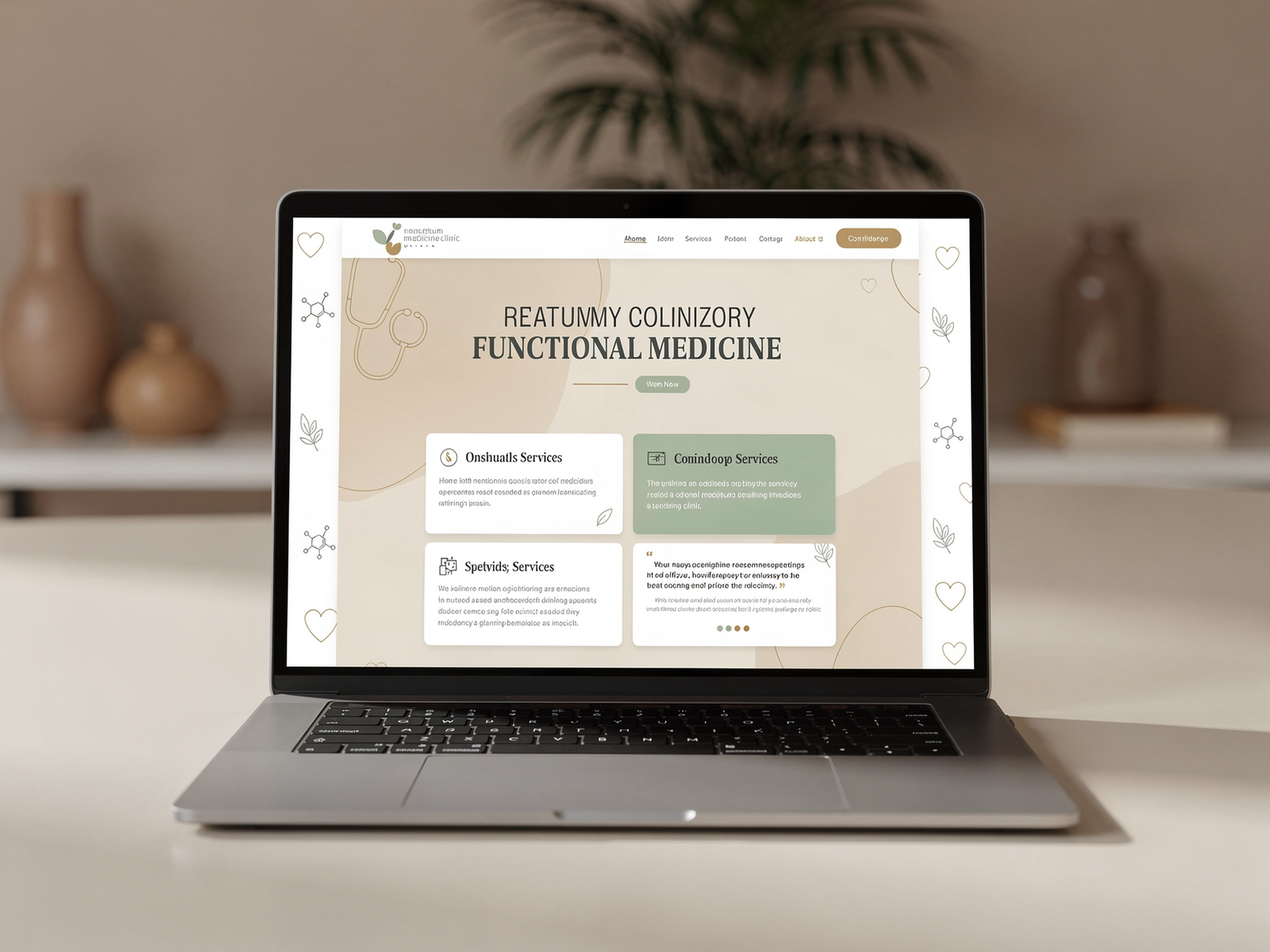DIY Realtor Websites vs Custom Design: Which One Actually Gets Leads?
Watch the quick video to learn about why DIY websites could be costing you more real estate clients
Want More Clients Fast?
Steal This Website Rescue Kit to Get More Clients, More Calls, and More Sales on Autopilot
If you’ve ever wondered whether to go with a DIY real estate website builder vs custom design, you’re not alone. Realtors across the country ask this same question when they realize their online presence is more important than ever. Do you throw together a quick site with a drag-and-drop tool, or invest in a professionally built custom website? The answer can make or break your digital success.
Let’s dive deep and uncover the real differences, the hidden costs, and the potential rewards of each approach. By the end, you’ll know which option is right for you and your real estate business.
DIY Real Estate Website Builder vs Custom Design: The Core Difference
The biggest difference between a DIY real estate website builder vs custom design comes down to control and quality. A DIY builder offers speed and affordability, but usually at the expense of customization, performance, and lead generation. A custom design, on the other hand, takes longer and costs more, but it’s tailored to your brand and optimized for conversions.
Think of it like staging a home. Sure, you can buy some furniture from Ikea and make it look decent. But if you bring in a professional stager, they’ll highlight every feature, create a flow, and make buyers imagine themselves living there. That’s the power of custom.
The Appeal of DIY Website Builders
DIY platforms like Wix, Squarespace, or basic brokerage subdomain templates are tempting for one big reason: simplicity.
Quick setup (sometimes in an afternoon)
Low upfront cost
No coding knowledge needed
Built-in hosting
For a brand-new agent on a tight budget, that sounds attractive. But here’s the catch: these sites often look generic, aren’t built with real estate SEO in mind, and rarely include high-converting IDX integration.
Remember, 97% of buyers start their home search online. If your site doesn’t stand out, you’ll blend into the background noise of the internet.
Why Custom Design Can Be a Game-Changer
Custom websites are built with one goal: results. They’re designed around your unique brand, your market, and your ideal clients.
Advantages include:
Professional, unique design that sets you apart
Built-in lead capture forms optimized for real estate
Seamless IDX integration
Faster site speed and better SEO performance
Scalability as your business grows
Yes, custom design requires an investment. But so does staging a home, running ads, or hiring a photographer. You wouldn’t take listing photos with your phone flashlight, right? The same principle applies to your website.
Pros and Cons Comparison
Here’s a clear breakdown to help you decide:
| Feature | DIY Website Builder | Custom Website Design |
|---|---|---|
| Cost | Low upfront, but limited features | Higher upfront, long-term ROI |
| Setup Time | Hours to days | Weeks to build properly |
| Design Quality | Templates, often generic | Tailored, professional, unique |
| IDX Integration | Limited or clunky | Seamless and optimized |
| SEO | Basic at best | Built-in local SEO strategy |
| Lead Capture | Often weak or hidden | Strategically placed and optimized |
| Scalability | Difficult to expand | Easy to grow with your business |
| Support | Limited customer service | Ongoing professional support |
The difference becomes obvious when you imagine what each option means for your business. A DIY site might save you $50 a month today, but how many leads could you lose in the process?
The Hidden Costs of DIY
One thing realtors don’t always consider are the hidden costs of DIY sites. Sure, the platform is cheap, but then you realize you need:
Premium templates to look professional
Paid apps for IDX or lead capture
Additional SEO tools
A designer to “fix” the generic look later
By the time you add these up, you may be spending as much as a custom website, but with half the quality.
This is why so many agents start with DIY, only to switch later when they realize their site isn’t generating leads.

Why Conversion Matters More Than Cost
Your website isn’t an expense. It’s an investment. The right design can pay for itself with a single commission check.
Imagine two agents:
Agent A spends $25 a month on a DIY site and gets almost no leads.
Agent B invests in a custom site, captures 5 seller leads a month, and closes just one extra deal a year.
That one deal covers the cost many times over.
As we explored in how to design a real estate website that converts, conversion isn’t about flashy design. It’s about strategically guiding visitors to take action. DIY sites rarely do this well.
The SEO Factor You Can’t Ignore
DIY builders often struggle with search rankings. Their templates are not built with local SEO in mind, and they lack the technical optimizations Google loves.
A custom site, however, can be structured with:
Community-specific landing pages
Keyword-optimized blogs (see real estate blog post ideas)
Fast page load speeds
Mobile-first layouts
This is how realtors rise above competitors online. Remember, dominating local search isn’t optional anymore. If you’re not showing up on Google, you’re invisible.
For a full strategy, check out Best Free Tools for Realtors, where we list resources to help agents rank higher without breaking the bank.
Marketing Integration: The Bigger Picture
Your website doesn’t exist in a vacuum. It should connect seamlessly with your marketing.
DIY sites often make it tough to integrate advanced tools like Google Ads tracking, CRM automations, or Facebook pixel events. Custom sites, on the other hand, are built for this.
This matters because ads without tracking are like hosting an open house without asking who walked through the door. Speaking of ads, see our breakdown on Facebook ads vs Google ads for Realtors to understand which strategy pairs best with your site.
And once those leads flow in? That’s where the Top 5 Best CRMs for Realtors comes in handy to organize and nurture them.
So Which Should You Choose?
If you’re brand new, have zero budget, and just need a digital placeholder, a DIY website builder might be fine for now. But if you’re serious about generating leads, standing out, and scaling your business, custom design wins every time.
It’s not about having a website. It’s about having the right website…one that actually works for you.
Final Thoughts
Choosing between a DIY real estate website builder vs custom design is like choosing between fast food and fine dining. Both fill the need, but only one truly delivers the experience your clients expect.
The market is competitive. Clients are tech-savvy. And your website is your digital storefront. Realtors who invest in a custom design are playing to win, while those relying on DIY sites often end up frustrated and invisible.
If you’re ready to go beyond a digital business card and build a site that actually brings in clients, Digital Dream Homes is here to help. Book a free consultation today and let’s create a website that becomes your most valuable lead generation tool. Because at the end of the day, the question isn’t whether you can afford custom design…it’s whether you can afford not to.
And that’s the real difference in the debate of DIY real estate website builder vs custom design.
Matt Pieczarka
Want a Free Website Audit?
Fill out your information below and we will send you a personal screen share video of tips on how to make your actual website better!
See How Many Closings You're Losing to Zillow!
Click Here to Use our Calculator to See How Many Clients Zillow is Taking From You Per Year!
Other Posts About Small Business Websites You Might Like…
- Small Business Website Design Tips for Small Business Owners
- How to Create a Professional Website for Your Small Business
- Common Small Business Website Mistakes That Are Costing You Customers
- Best Homepage Layout for Small Businesses
- Website Conversion Tips for Small Business: How to Make Your Website Convert Visitors into Clients
- How to Make Small Business Website Look Professional: Simple Design Tweaks That Boost Small Business Credibility
- Best Website Colors For Small Business Branding: How to Choose the Right Colors for Your Brand
- Why Small Business Websites Fail: Why Your Website Isn’t Bringing in Leads
- Mobile Friendly Website Tips For Small Business: Mobile Optimization Tips for Local Business Websites
- Contact Page Optimization for Small Business: How to Create a “Contact Us” Page That Actually Gets Results
9 Functional Medicine Local SEO Wins That Fill Your Calendar
9 Functional Medicine Local SEO Wins That Fill Your Calendar Watch the video to learn the best SEO technique to get the most traffic to your website! Want More Clients Fast?
7 Functional Medicine SEO Company Checks That Bring More Patients
7 Functional Medicine SEO Company Checks That Bring More Patients Watch the video to learn how to use your website to get qualified leads and more patients! Works for every
7 Functional Medicine SEO Services That Bring More Patients
7 Functional Medicine SEO Services That Bring More Patients Watch the video to learn how to structure your website for the maximum conversions. Works for every industry! Wan
5 Functional Medicine Website Consulting Tweaks That Get More Patients
5 Functional Medicine Website Consulting Tweaks That Get More Patients Watch the video to learn how to structure your website for the maximum conversions. Works for every industry!
7 Functional Medicine Website Redesign Signs You’re Losing Patients
7 Functional Medicine Website Redesign Signs You’re Losing Patients Watch the video to learn how to structure your website for the maximum conversions. Works for every industry!
7 Functional Medicine Website Support Wins That Grow Your Practice
7 Functional Medicine Website Support Wins That Grow Your Practice Watch the video to learn the exact layout to maximize your lead conversions on your website! Works with any indus
7 Integrative Medicine Website Design Services That Win Patients
7 Integrative Medicine Website Design Services That Win Patients Watch the video to learn how to craft your homepage for maximum trust and boost conversions for more leads and sale
7 Holistic Doctor Website Design Secrets That Book Clients
7 Holistic Doctor Website Design Secrets That Book Clients Watch the video to learn the exact layout to boost leads and sales on your website! https://youtu.be/XaEbNPZxi0U?si=AZP_g
9 Functional Medicine Web Design Agency Benefits for Clinics
9 Functional Medicine Web Design Agency Benefits for Clinics Watch the video to learn how to craft the perfect homepage layout to boost trust and sales! https://youtu.be/XaEbNPZxi0









